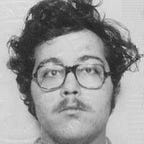I Guess That I Need to Talk About This
Last night, I posted an interesting article that I originally found on the Russian nationalist site The Vinyard of the Saker.
Some of you are no doubt wondering why I am skulking around that part of the internet. (I am sure that a lot of you are just dismissing me as a tankie.)
I have been following Russian nationalist writings for years, because I think that its important to understand the attitudes of politically engaged Russians, particularly those who are hostile and suspicious of the west.
Given that Russia has thousands of nuclear weapons, and has been on a collision course with the US over the ill-advised NATO expansion since Boris Nikolayevich was President of the Russian Federation, and that elements of the US state security and foreign policy apparatuses have been calling for the eventual breakup of the Russian Federation in the manner that Yugoslavia was broken up.
The basic calculus of the great power conflict are fairly straightforward, and the Russians have been very clear on this since (at least) Putin’s 2007 speech at the Munich security conference.
You don’t need to get your finger on the pulse of the Russian nationalists to figure this out, but if you want to understand the underlying attitudes driving this, you do need to read what they have written.
Here are the takeaways that I have gotten from reading these sites:
- They have not gotten over 1054,* and as such see the the conflict as a part of a war on Orthodox Christianity.
- For some reason, the British and the Church of England is a common theme in this.
- They see the west as implacably hostile to Russia and Russians.
- They believe at significant elements of the polity in other former Soviet republics are Nazis, neo-Nazis, or glorify Nazis, which is like waving a red flag in front of a bull for most Russians, even more so for Putin, who is St. Petersburg (Leningrad) born and bred. (That whole siege of Leningrad thing)
I think that this explains Putin’s opportunistic appeals to “traditional” Russian religious values.
I also think that, for at least some of the Russian public see this as a literal religious crusade.
Perhaps it would have been better if the American state security and foreign policy apparatus, generally known as, “The Blob,” had actually addressed the more concrete concerns of successive Russian governments over the past 30 years or so.
To quote (not) Tallyrand, 30 years of US triumphalism, “Was worse than a crime, it was a mistake.”
*The Great Schism. Read a history book.
